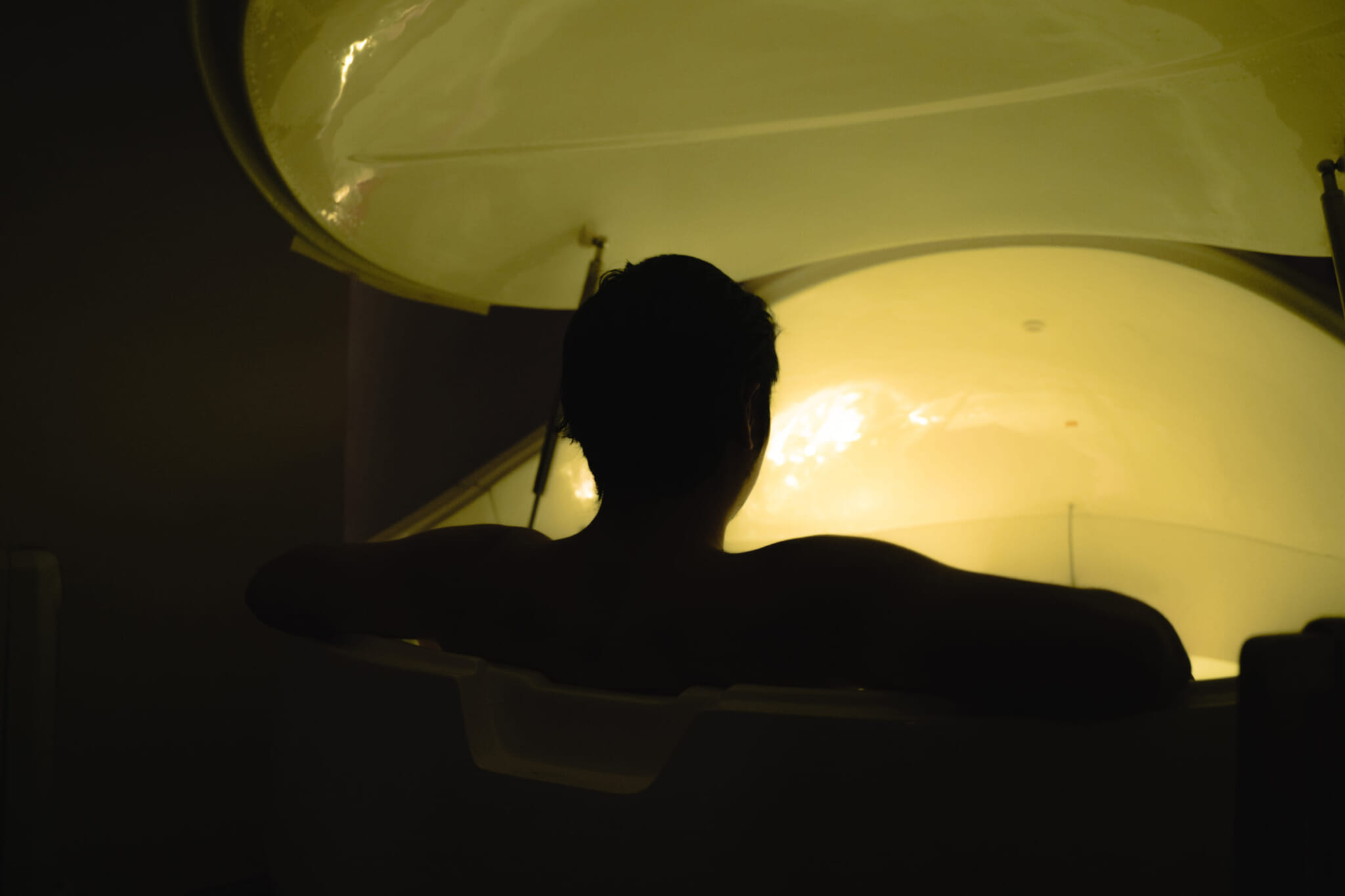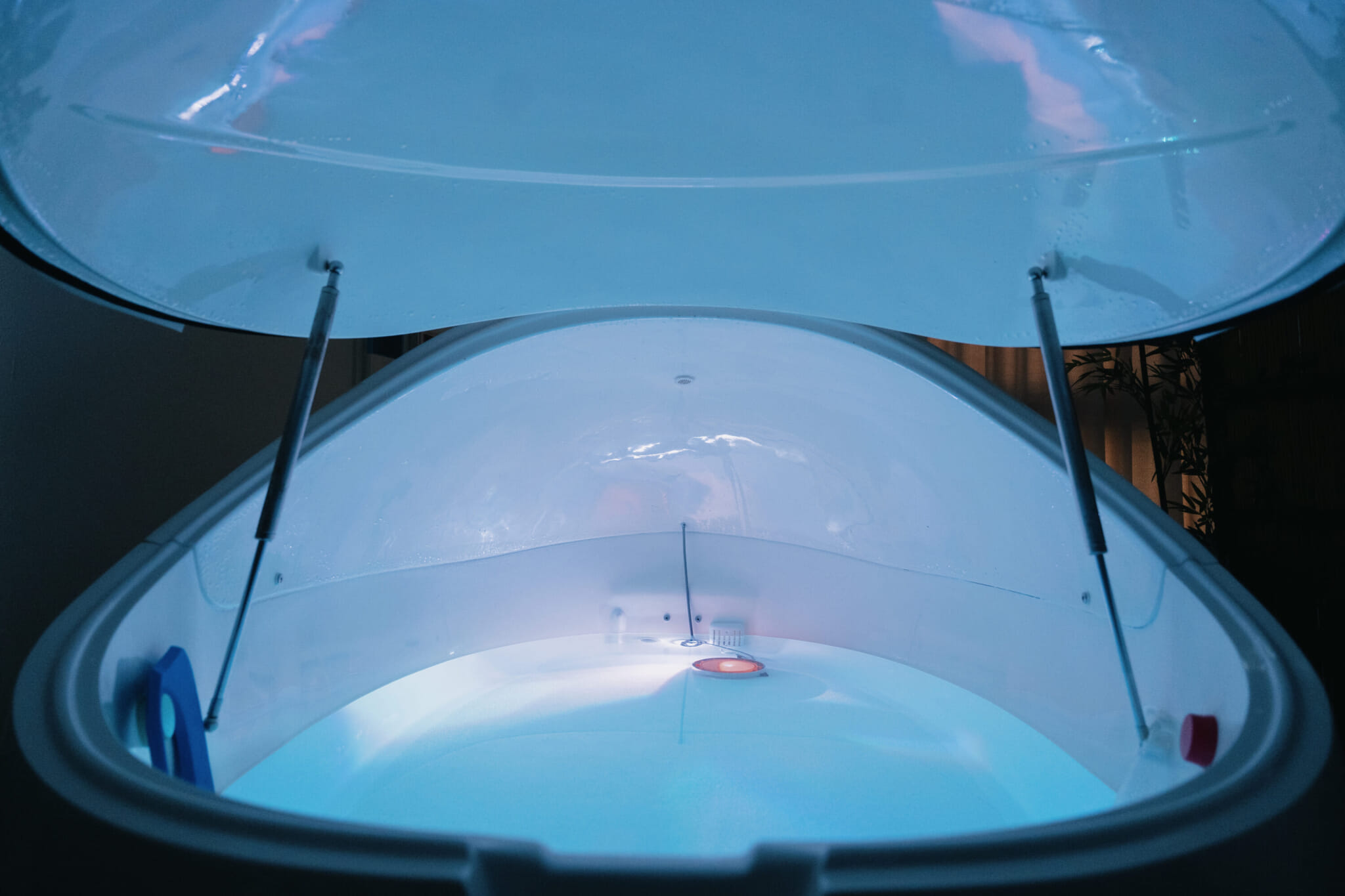“If you encounter something unpleasant, acknowledge its presence; then breathe out to expel it, three times over.” I’m at Cocorodo, one of several floatation tank centers in Tokyo, where owner Yuya Kanesaka is easing my trepidation at spending 90 minutes enclosed in a blacked-out, soundproof tank, floating in Epsom salt–rich water while deprived of external stimuli.
My hesitancy is not due to claustrophobia or similar, but rather the thought of facing my conscience head-on; ‘no filter’ and without distraction. While I’ve generally tried to “do the right thing,” it’s surely a rare individual who reaches middle age without ruing some past behavior.
Facilitating Relaxation and Self-Exploration
The floatation tank (also known as the isolation tank, or sensory deprivation tank) was developed in the 1950s by scientist and “psychonaut” John C. Lilly, whose other projects included human-dolphin communication. A float session is intended to facilitate relaxation and self-exploration through immersion in sheer nothingness, or what Kanesaka compares to the Zen Buddhist notion of “mu.”
Until the current wellness boom, floatation had remained a niche pursuit shrouded in an air of esoteric mystery. Now though, it is beginning to enter the Western mainstream alongside such practices as breathwork, ice baths and micro-dosing psychedelics.
Kanesaka, who has long practiced Zen meditation, became an advocate for floatation tanks after discovering their ability to take users — even first-timers — into a headspace that would otherwise take over 20 years of meditation to reach. This, he explains, is due to the fact that isolation tanks and dedicated, long-term meditation alike can induce the brain to generate theta waves while awake.
Theta waves, usually produced in the moments between sleep and wakefulness, are associated with creativity, intuition, learning and memory processing. Floatation, Kanesaka elaborates, may help relieve a range of mental and physical ailments including stress, depression, sleep disorders, muscle ache and injury. Disclosure: I’m no stranger to several of the psychological issues he cites.
After climbing naked into the pod-like tank, I close the lid then hit a green button to begin the experience (a red ‘panic button’ is also on hand, should the occupant feel distressed at any point). The tank’s lighting fades to absolute darkness, some new-age intro music plays, and it takes me a short while to physically adjust to the sensation of floating effortlessly in water.
A State of Contented Humility
With no external cues, I soon lose a clear sense of time passing. The incessant mental chatter, that can be identified as one’s ego, is at first amplified as I urgently question how I will put the experience to come into words. Amid such thoughts, I notice that the usual, always-present awareness of the boundaries of my body has become indistinct.
I attempt to turn my thoughts back to this article, but my previous concern has dissipated entirely. A happy childhood memory, one I haven’t recalled in decades, comes vividly to mind, followed by the thought of an individual I’ve recently been holding a grudge against. I toy with the idea of letting the ill will go. That thought ushers in a degree of relaxation I have probably never known before.
Gently, I’m struck by the impression that my consciousness is occupying the entirety of the space surrounding me. But this ‘space’ is not the confines of the tank, which I am now oblivious to, but instead the totality of all that I can conceive of.
Rather than any sense of self-importance, though, this feeling is accompanied by a visceral sense that my ego has been reduced to its barest core: I am at once all that exists and simultaneously a consciousness of no great significance. That internal monologue is virtually mute. My body I have almost forgotten exists.
The anticipated reckoning with my conscience never comes. For an uncertain length of time I exist in a state of contented humility.
As the background music that preceded my float is reprised, the lights go up on my inner journey. After I’ve emerged from the tank, Kanesaka tells me that my experience is a common one: that floatation can engender, as well as the relaxation sought by the wellness crowd, a degree of ‘ego death’ that may open up an individual for self-discovery and more effective psychotherapy.
Psychedelically Assisted Therapy
Floatation-centered therapy has been trialed in the US for treatment of PTSD, with promising results. Given the unlikelihood of Japan authorizing the kind of psychedelically assisted therapy that is gradually gaining acceptance elsewhere, float tanks might have great potential in this country where, as Kanesaka laments, “mental and spiritual care is really behind the curve.”
Cocorodo’s owner, for his part, says he hopes to help Tokyo’s famously overworked population toward the realization that, when it comes to the psyche, preventative maintenance trumps trying to pick up the pieces once things have fallen apart.
I’m still feeling tranquil as I bid Kanasaka farewell. He tells me to expect this to last for around four days. Unusually unfazed by my ride home on a jam-packed commuter train, I have the feeling I’m returning from somewhere impossibly distant.
Visit Float Tank Spa Cocorodo’s official website for more information.










